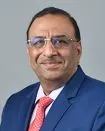Union of India vs. Sony India Pvt. Ltd. 1
Recently, the Hon'ble Supreme Court dismissed the Revenue's SLP and upheld the decision of the Telangana High Court ('HC'), wherein the HC had allowed the assessee to claim refund of the excess duty paid, through amendment of the Bills of Entry under Section 149 of the Customs Act, 1962 ('Customs Act'), instead of filing an appeal under Section 128. The Supreme Court disregarded the Revenue's contention that only appeal remedy under Section 128 of Customs Act was available to the assessee for claiming refund of excess duty paid.
Facts of the case:
- Sony India Pvt. Ltd. ('the Respondent') is engaged in the business of manufacturing and marketing of different types of electronic goods including mobile
- During the period of August 2014 to January 2015, the Respondent imported and cleared mobile phones in India by filing BoEs under the Customs Tariff Item 85171290 of Schedule I to the Customs Tariff Act, 1975. Accordingly, the Respondent paid Countervailing Duty ('CVD') under Section 3(1) of the Customs Act at the rate of 6% as per Sl.No.263A(i) of Notification No.12/2012-CE, dated March 17, 2012 ('Exemption Notification').
- In the said Exemption Notification, a concessional rate of 1% was also available on mobile phones subject to the condition that no credit is availed on the inputs or capital goods used in the manufacture of such mobile phones.
- The Respondent could not opt for the concessional rate of 1% for clearance of mobile phones as the Electronic Data Interchange ('EDI') system did not permit availment of the lower rate of tax.
- Moreover, the Department took a stand that the exemption is available only when the assessee has not taken credit in respect of the inputs and capital goods under the CENVAT Credit Rules, 2004 ('Cenvat Credit') for the manufacture of mobile Since in the present case the Respondent is importer-trader, the said concessional rate of 1% is not available to them.
- In March 2015, Hon'ble Supreme Court in M/s SRF Limited vs. Commissioner of Customs, Chennai2 held that in case of importer-trader, where the lower rate of excise duty has been provided with condition of non-availment of CENVAT Credit, the said condition is deemed to be fulfilled as CENVAT Credit cannot be availed (in any case).
- Pursuant to the SRF judgment, the Respondent filed an application under Section 149 of the Customs Act thereby claiming refund of the excess CVD paid.
- This was rejected by the Revenue on the ground that a Bill of Entry was a 'speaking order' and thus, any modification of the same was only possible through the appeal mechanism stipulated under Section 128 of the Customs Act.
- The Respondent thereafter preferred a Writ petition before the HC.
- The HC decided the matter in favour of the Respondent and held
that the Respondent is rightly eligible for amendment of the BoE
under Section 149 and allowed refund of excess duty paid on the
following grounds:
- Respondent is entitled to file an appeal challenging the assessment of BoE under Section 128.
- Additionally, Respondent can also seek amendment of BoE under Section 149.
- Amendment under Section 149 is an additional remedy available to the Respondent with only condition that the documentary evidence based on which the amendment is sought should be in existence at the time of clearance of goods.
- Revenue has failed to consider the fact that Section 149 of the Customs Act does not prescribe any time limit for amending the BOE.
- Revenue's contention that reliance cannot be placed on the SRF decision, as it was not available at the time when goods were cleared by the Respondent, is not legally tenable, as decisions of the Supreme Court are bound to be applicable retrospectively, unless explicitly declared otherwise.
- Aggrieved by the HC's decision, the Revenue preferred an SLP before the Hon'ble Supreme
Supreme Court's findings and decision:
- Rejecting the Revenue's submissions, the Hon'ble Supreme Court dismissed the Revenue's SLP and affirmed the HC's observations.
- The Respondent hence is within its legal rights to directly claim refund of the excess paid CVD, through amendment of BoE under Section 149 of the Customs Act.
Dhruva Comments
Seeking a correction to a BoE has always been an intriguing issue, since it can be done either by filing an appeal under Section 128 of the Customs Act, or by seeking an amendment / rectification under Section 149 or 154.
The judgment establishes that importers have the option of getting the BoE modified either through the appeal mechanism given under Section 128, or subject to the availability of sufficient documentary evidence, through amendment of the said BoE under Section 149/154 of the Customs Act.
Footnotes
1 2023 (4) TMI 1086 - SC
2 2015 (4) TMI 561 - SC
The content of this article is intended to provide a general guide to the subject matter. Specialist advice should be sought about your specific circumstances.




